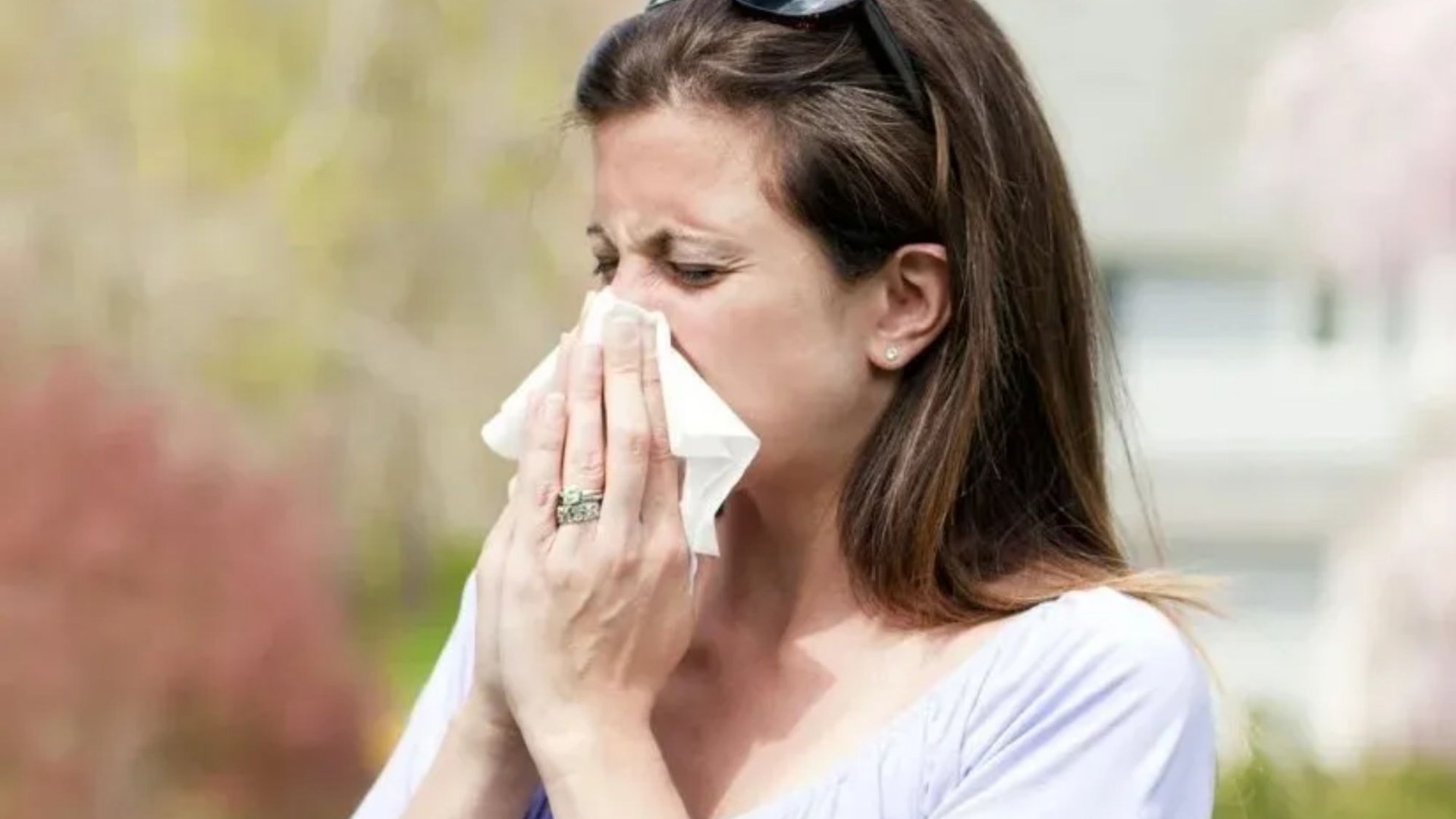Health
Irish Households Advised to Avoid Fabric Softener Amid Pollen Spike

As pollen levels rise across Ireland, households are being urged to reconsider their laundry choices, particularly the use of fabric softener. According to Met Éireann, a significant spike in pollen counts is expected this week, exacerbating symptoms for those suffering from hay fever. Many individuals are already experiencing symptoms such as red eyes, blocked noses, and itchy throats as warmer weather sets in.
The use of fabric softener, while popular for its fresh scent and softness, can actually worsen allergy symptoms. The residue left on clothing can trap pollen, making it easier for allergens to cling to fabrics. Consequently, every movement could release these allergens back into the air, increasing discomfort for those affected by hay fever and other respiratory issues.
Recommended Alternatives and Cleaning Tips
To alleviate these symptoms, individuals are encouraged to opt for gentler laundry alternatives. Using a non-bio detergent instead of fabric softener is a practical step. For those who prefer softer fabrics, adding a small amount of white vinegar during the rinse cycle serves as a natural alternative that does not trap pollen.
In addition to changing laundry products, maintaining a clean washing machine is essential. Over time, pollen and other allergens can accumulate inside the machine. Running it on a hot wash regularly, along with wiping down the door seal and emptying the filter, can help ensure that allergens do not cling to clean laundry.
Drying clothes indoors is another important recommendation. Although the sun may be inviting, hanging clothes outside can lead to pollen sticking to damp fabrics, which may then transfer onto skin or bedding. Instead, using an indoor drying rack or a tumble dryer is advised for those sensitive to pollen.
Additional Strategies for Managing Hay Fever Symptoms
Investing in anti-allergy bedding can also significantly improve nighttime comfort. Pillows and duvets designed to block or repel dust and pollen can help alleviate symptoms while sleeping. Shoppers can find such products at retailers like Dunnes, Lidl, or various online Irish retailers, often priced around €10.
For those suffering from hay fever, regular washing of bedding is vital. It is recommended to wash sheets, pillowcases, and duvet covers at least once a week at 60°C. This practice helps remove accumulated pollen, dust mites, and skin particles. Ensuring that everything is fully dried before replacing it on the bed is crucial to avoid dampness and mold.
With pollen levels poised to peak in the coming days, implementing these practical steps can assist many Irish households in managing their hay fever symptoms more effectively.

-

 Top Stories3 months ago
Top Stories3 months agoTributes Surge for 9-Year-Old Leon Briody After Cancer Battle
-

 Entertainment4 months ago
Entertainment4 months agoAimee Osbourne Joins Family for Emotional Tribute to Ozzy
-

 Politics4 months ago
Politics4 months agoDanny Healy-Rae Considers Complaint After Altercation with Garda
-

 Top Stories4 months ago
Top Stories4 months agoIreland Enjoys Summer Heat as Hurricane Erin Approaches Atlantic
-

 World5 months ago
World5 months agoHawaii Commemorates 80 Years Since Hiroshima Bombing with Ceremony
-

 Top Stories3 months ago
Top Stories3 months agoNewcastle West Woman Patricia Foley Found Safe After Urgent Search
-

 Top Stories5 months ago
Top Stories5 months agoFianna Fáil TDs Urgently Consider Maire Geoghegan-Quinn for Presidency
-

 World5 months ago
World5 months agoCouple Convicted of Murdering Two-Year-Old Grandson in Wales
-

 World5 months ago
World5 months agoGaza Aid Distribution Tragedy: 20 Killed Amid Ongoing Violence
-

 World5 months ago
World5 months agoAristocrat Constance Marten and Partner Convicted of Infant Murder
-

 Top Stories4 months ago
Top Stories4 months agoClimbing Errigal: A Must-Do Summer Adventure in Donegal
-

 Top Stories4 months ago
Top Stories4 months agoHike Donegal’s Errigal Mountain NOW for Unforgettable Summer Views








